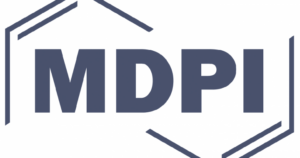| Principal Investigator: | Greg Cumpton, PhD |
| Sponsor: | Workforce Solutions Capital Area |
| Project Duration: | April 2022 – December 2024 |
| Description: | The Ray Marshall Center has partnered with Workforce Solutions Capital Area to provide services to collect, analyze, and report data outcomes under the Hire Local Plan. |
| Reports Available: |
CareerAdvance® Implementation Study Final Report: Findings from 2006 through FY 2021
CareerAdvance® Implementation Study Final Report: Findings from 2006 through FY 2021
Authors: Cynthia Juniper and Chris King
Date: April 2022
Publication Type: Report, 74pp.
Prepared for the Health Profession Opportunity Grant Program, Administration for Children and Families, U.S. Department of Health and Human Services.
This report examines the implementation of CareerAdvance® particularly focusing on how and why the program changed and adjusted to meet the requirements of HPOG, while responding to the needs of the participants being served, the local job market, the partners working together to implement the program, and the influence of the COVID-19 pandemic on service delivery. This report draws from previous CareerAdvance® reports, administrative information on the HPOG II program participants and their families, and interviews with the leadership and staff of CAP Tulsa, Tulsa Tech, Family and Children Services, Workforce Tulsa, and Tulsa Community WorkAdvance.
CAREER Project Evaluation
| Principal Investigator: | Greg Cumpton, PhD |
| Sponsor: | Greater Austin Chamber of Commerce |
| Project Duration: | February 2022 – May 2024 |
| Description: | The CAREER Project (Trellis Foundation’s Regional Ecosystem Innovation for Reskilling/Upskilling in Texas) aims to create a network of postsecondary and employment support for individuals in the Central Texas community impacted by the COVID-19 pandemic by building out widescale infrastructure like a referral map and integrated marketing and data efforts. The Ray Marshall Center has partnered with the Greater Austin Chamber of Commerce to evaluate the CAREER Project. |
| Reports Available: |
Dr. Greg Cumpton named Co-Director
The LBJ School’s Dean JR DeShazo recently selected Dr. Greg Cumpton to serve as Co-Director of the Ray Marshall Center along with Dr. Heath Prince.
Dr. Greg Cumpton joined the Ray Marshall Center in 2004 as a Graduate Research Assistant. During his time at the Center, he served as a Systems Analyst, a Social Science Research Associate V, a Research Associate, and Associate Director, prior to being named Co-Director. Greg received his Bachelor of Science degree in Mathematics from the University of Nebraska at Omaha, and his Master of Public Affairs and his Doctorate in Public Policy from the LBJ School of Public Affairs.
Greg’s research focuses on finding solutions to poverty. He says, “Poverty is a trap that once individuals and their families fall into may take many decades and even generations to escape. Poverty collectively cascades its effects across entire regions, producing lower educational attainment, poorer long-term health consequences, and reduced economic output. All of which hamper the ability of individuals and their families to reach their full potential. We must acknowledge and address the personal and societal barriers faced by those trapped by poverty.” Much of his work concentrates on the evaluation of education and training programs, ensuring that program completers find high quality jobs which improve initial and long-term income.
Greg contributes to local activities intended to provide a greater voice for workers. Greg has served for six years as the Leadership Development Committee lead on the Board of Black Star Co-op, a member-owned worker-run brewpub. BSCO’s Workers’ Assembly enacts and advocates for worker-focused policies, including paying a living wage, providing healthcare, paid time off, and paid sick leave. Greg is serving his third year as the UT Staff Council representative for District 302, which represents the LBJ School of Public Affairs and the School of Information. He currently serves as chair of the Health and Wellness Committee, which “supports and advocates for initiative and projects that increase staff access to, and awareness of, health and wellness programs and benefits.” Greg also volunteers his time as the Community Advancement Network (CAN) Dashboard Steering Committee Chair. The CAN dashboard contains numerous socio-economic indicators measuring the health, safety, and well being of those living in the Austin area.
As Co-Director, Greg’s additional duties include serving as the outreach and dissemination leader of the Center, leading construction and dissemination of our newsletter, social media, and website, and representing the Center in local, state, and national contexts. This year his efforts will include developing and utilizing existing standardized research training modules for new staff and graduate research assistants. By January 2023, he will revise the Center’s strategic plan to align more closely with both the LBJ School and The University of Texas.
Please congratulate Greg on his new position.
Nuru Ethiopia 2021 Impact Report
Nuru Ethiopia 2021 Impact Report
Authors: Ashweeta Patnaik and Heath Prince (Ray Marshall Center); Tatek Amataw (Nuru Ethiopia); and Casey Harrison, Matt Lineal, and Ian Schwenke (Nuru International)
Date: June 2022
Publication Type: Report, 20pp.
This report is commissioned by Nuru International.
Since 2016, the Ray Marshall Center has provided technical assistance to Nuru International’s monitoring and evaluation (M&E) team. The Center’s experience and expertise support Nuru’s work in Kenya, Ethiopia, and Nigeria by demonstrating the effectiveness and robustness of its integrated approach to addressing poverty. This report presents Nuru Ethiopia’s 2021 impact results for farmer cooperatives and rural livelihoods programming. RMC researchers found that Nuru interventions led to higher agricultural yield as well as higher additional incomes for Nuru farmer households while building a foundation of sustainable cooperative businesses.
Nuru Nigeria 2022 Short-Term Impacts
Nuru Nigeria 2022 Short-Term Impacts
Authors: Ashweeta Patnaik and Heath Prince (Ray Marshall Center); Amos Emmanuel, Bless Jima, Abel Malafa, Olayinka Orefunwa (Nuru Nigeria); Dena Bunnel, Casey Harrison, Matt Lineal, Ian Schwenke (Nuru International)
Date: May 2022
Publication Type: Report, 18pp.
This report is commissioned by Nuru International.
RMC researchers have completed an interim short term impact report for the four-year impact evaluation of Nuru International’s programming in Nigeria. Nuru Nigeria’s goal is to equip rural, vulnerable households to improve livelihoods and build resilience capacities to cope with conflict, environmental, economic, and social shocks and stressors for stability and prosperity. This short-term impact report is an interim measurement point nested within the larger clustered randomized control trial running from 2019-2023. The results presented in this short term impact report reflect the intervention activities implemented in 2019-2022. The findings from this report will inform Nuru Nigeria’s mid-year review and end-of-year review of activities.
Research Study of Austin Community College’s Rainy Day Savings Program: Year One Report
Research Study of Austin Community College’s Rainy Day Savings Program: Year One Report
Authors: Ashweeta Patnaik and Greg Cumpton
Date: April 2022
Publication Type: Report, 38pp.
Background:
Austin Community College’s (ACC) Student Money Management Office (SMMO), established in 2016, supports Austin Community College student success by providing accessible and relevant money management education, enabling students to make informed financial decisions. In fall 2018, SMMO piloted the Rainy Day Savings Program, modeled after the successes of Individual Development Accounts (IDAs) which have helped low-income people save and attain assets.
In the Rainy Day Savings program pilot, students earned up to $100 in cash incentives for completing certain tasks and meeting milestones. These tasks and milestones were chosen because of their potential impact on future financial wellness, such as setting up direct deposit, completing the Free Application for Federal Student Aid (FAFSA), and meeting with a financial coach. Savings accounts were opened for students at University Federal Credit Union (UFCU) exclusively for the Rainy Day Savings Program, and students worked towards amassing at least $500 in total savings.
Based on the initial results, ACC believed that this program could help students address a financial emergency before it escalates to a financial crisis while also providing students with practical experience interacting with a financial institution, applying financial literacy skills, and experience managing a bank account. ACC sought to expand and refine the program and received funding from Trellis Foundation in January 2020 to support this effort.
ACC partnered with the Ray Marshall Center (RMC) at The University of Texas at Austin to study the effectiveness of the Rainy Day Savings program. This research study aimed to provide actionable information about the success of the intervention allowing for ACC and Trellis to make decisions about program modifications and sustainability.
Issue 32, May 2022
Evaluation of Travis County Investments in Workforce Development: 2021 Update
Evaluation of Travis County Investments in Workforce Development: 2021 Update
Authors: Cynthia Juniper, Patty Rodriguez, and Heath Prince
Date: February 2022
Publication Type: Report, 170pp.
This evaluation examines outcomes and impacts for participants exiting the Travis County-funded community-based workforce programs between FY 2016 and FY 2020. To understand the impact of these services, the county has contracted with the Ray Marshall Center for the Study of Human Resources (RMC), an organized research unit in the LBJ School of Public Affairs at The University of Texas, to conduct a longitudinal evaluation of its investments. This evaluation report presents findings and analyses of programs funded during a five-year on-going evaluation (FY 2016–FY 2020).
RMC’s Dr. Heath Prince co-authors article on interventions to prevent occupational heat stress in laborers
RMC’s Director and Research Scientist Dr. Heath Prince co-authored an article outlining interventions to prevent occupational heat stress in laborers during physically demanding work in high environmental temperatures. The article titled “Workplace Intervention for Heat Stress: Essential Elements of Design, Implementation, and Assessment” was published on March 22, 2022, in the International Journal of Environmental Research and Public Health (IJEPH) by MDPI Open Access Journals and can be found here.
Abstract:
Heat stress is associated with numerous health effects that potentially harm workers, especially in a warming world. This investigation occurred in a setting where laborers are confronted with occupational heat stress from physically demanding work in high environmental temperatures. Collaboration with a major Nicaraguan sugarcane producer offered the opportunity to study interventions to prevent occupational heat-stress-related kidney disease. Two aims for this study of a rest-shade-water intervention program were: (1) describe the evolving intervention, summarize findings that motivated proposed improvements, assess impact of those improvements, and identify challenges to successful implementation and (2) extract primary lessons learned about intervention research that have both general relevance to investigations of work-related disease prevention and specific relevance to this setting. The learning curve for the various stakeholders as well as the barriers to success demonstrate that effectiveness of an intervention cannot be adequately assessed without considerations of implementation. Designing, effectively implementing, and assessing both health impacts and implementation quality is a resource-intensive endeavor requiring a transdisciplinary approach. Both general and specific lessons learned are presented for decisions on study design and study elements, implementation assessment, and management engagement in understanding how productivity and health can be successfully balanced and for building effective communication between investigators and all levels of management.
- « Previous Page
- 1
- 2
- 3
- 4
- 5
- …
- 40
- Next Page »




